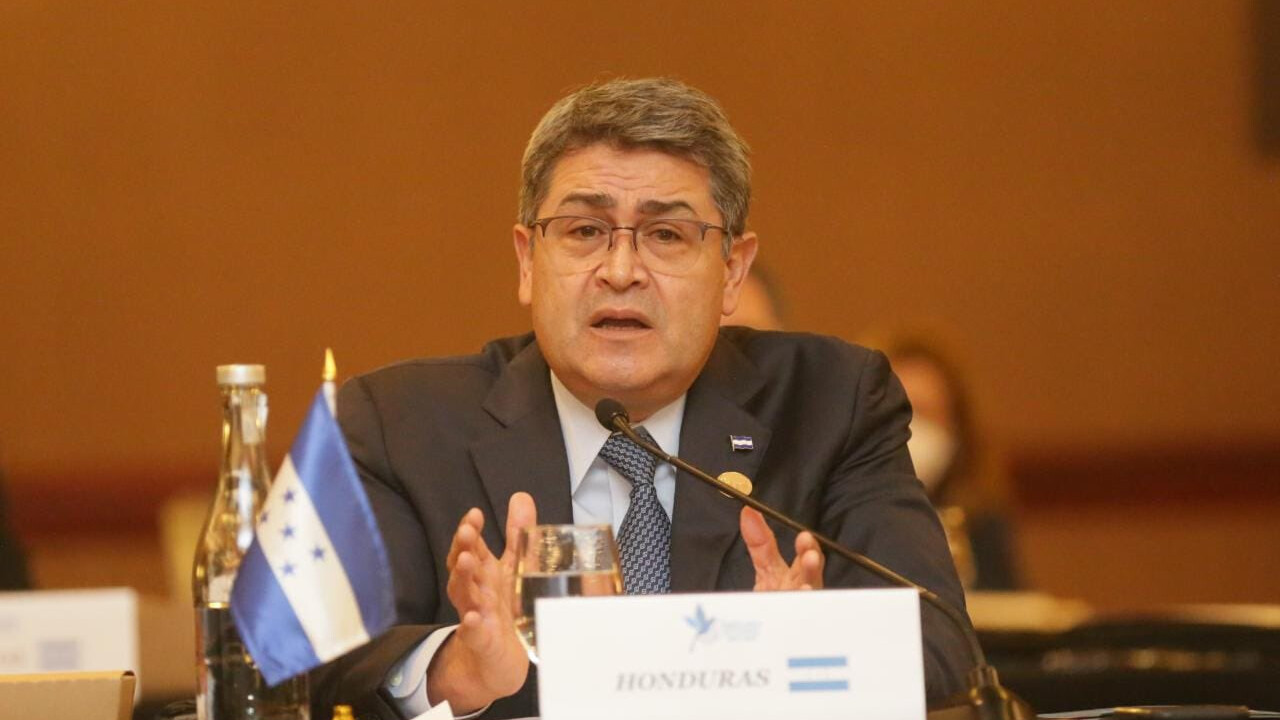Will Honduran ex-President’s guilty verdict undermine Latin America’s relations with the US?
China’s rise gives Latin American leaders more geopolitical options but forces the US to tread more carefully in its ‘backyard’, writes William Lee, Director at business intelligence consultancy, SecureValue…

From hero to zero. Once hailed by Donald Trump for "working with the United States very closely" and for his help "stopping drugs at a level that has never happened”, former Honduran president Juan Orlando Hernández is now facing at least 40 years in a US prison. Somewhat ironically, he was charged with narcotics offences.
Following the conviction, US Attorney General Merrick Garland accused Hernández of having run Honduras as a “narco-state where violent drug traffickers were allowed to operate with virtual impunity”.
This is not a hugely surprising turn of events given Latin America’s long and complex history of drug traffickers being able to generate immense wealth and then using it to influence and penetrate politics. But it neatly encapsulates a dilemma for policymakers north and south of the Rio Grande.
The political cost of the ‘War on Drugs’
For Latin American politicians that think the US will turn a blind eye as long as they are a useful ally, it raises questions over why they would cosy up to the US if less than a decade later, after the political winds have changed, they risk extradition and trial in a federal court.
Hernández, on March 8, was convicted on three counts of drug trafficking and weapons conspiracy. He is facing a mandatory minimum sentence of 40 years in jail. This followed extradition from Honduras shortly after completing his second presidential term in 2022.
With this in mind, the temptation of working more closely with other allies, such as China, that tend to attach fewer strings to their bilateral relations—and are not committed to fighting a war against drugs—will only increase.
For US policymakers, the opposite applies. US leaders will have to walk an increasingly fine line in their relationships with the region if they are to retain their traditional position of influence.
The US has been here before: former Panama dictator, Manuel Noriega, was a long-standing US ally until he was sentenced in 1992 by a US court to 40 years in prison – also on drug trafficking charges.
Chinese challenge
During the 1970s and 1980s, the US was protecting its dominant position in the region against the threat of Soviet influence during the Cold War. However, conditions today are different, particularly as Chinese influence presents a different problem.
Although nominally still a Communist country, its international relations are far more transactional. As a result, what used to be a fairly straightforward split of right-wing leaders siding with the US and left-wing leaders supporting the Soviet Union has now, at least partially, broken down.
The lack of ideological demands imposed by China, beyond withdrawing diplomatic recognition of Taiwan, allows politicians of all stripes to do business with the country. China is also able to lean on huge inward investment via its state-owned enterprises and can expand its footprint in the region via the Belt and Road Initiative, a massive global infrastructure programme.
US leaders will have to walk an increasingly fine line in their relationships with the region if they are to retain their traditional position of influence.
The sheer size and power of the Chinese market—both as a destination for Latin American commodities exports and an alternative source of imports—and its control of supply chains gives the Asian giant considerable clout in the region that the Soviet Union could never manage.
Indeed, pressure from the US tends to be the primary restraint on relations with China, seen most clearly by the Trump administration’s attempts to block the deployment of telecoms equipment by Chinese firm Huawei in the region over espionage fears.
More options for Latin America
As a result, Latin American governments have more options than they did in the past. This has been underscored by the neutral position many of them have taken on the conflict in Ukraine and their statements on Chinese intentions with regard to Taiwan.
Although it gains little attention, boosting the region’s adherence to a “non-aligned” position in global affairs is an achievement for China at the US’ cost – it essentially removes a potential ally from the game.
Even Russia is getting in on the act. It doesn’t have the same economic power and reach that China does, but it has been able to align its interests with the region’s more autocratic regimes, such as Venezuela, Cuba and Nicaragua, while also continuing to supply military hardware to other many countries in the region.
All of which makes the US’ task of maintaining influence in what has traditionally been viewed as its backyard harder. Ultimately, US prosecutors’ ability to independently build a case against a key ally is a sign of a healthy democracy with a true separation of powers.
However, the war on illegal narcotics will continue and will inevitably lead to further interventions in key transhipment countries. And in an age of easy access to information, it becomes harder for US administrations to turn a blind eye to the transgressions of errant allies, a problem China doesn’t have with its tightly controlled media.
US politics is also increasingly fractured, leading to more dramatic swings in policy when changes of government occur (nowhere is this clearer than the current congressional impasse on aid to Ukraine and US border security).
Add to this a perception among Latin American leaders that you could be hauled off to face detention in a maximum-security US prison at the end of your term and spreading your bets looks a lot more appealing.
Author: William Lee is a Director at business intelligence consultancy, SecureValue.